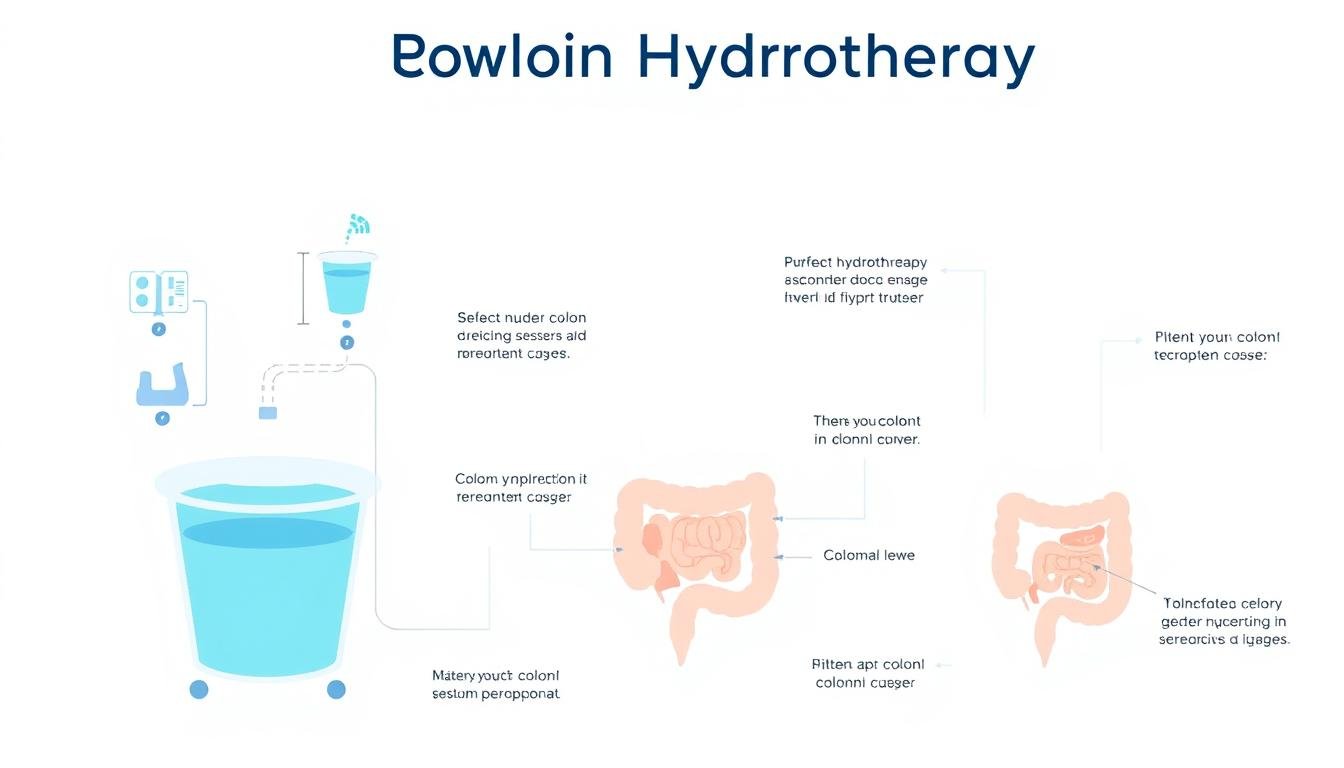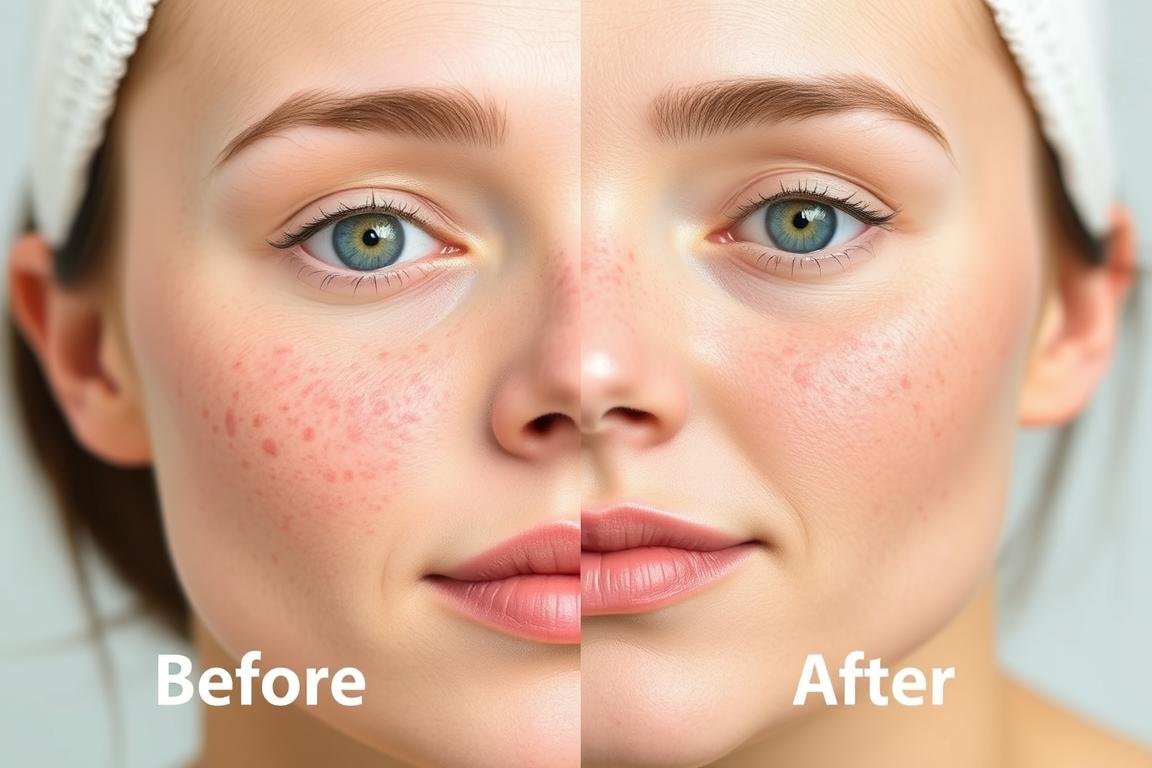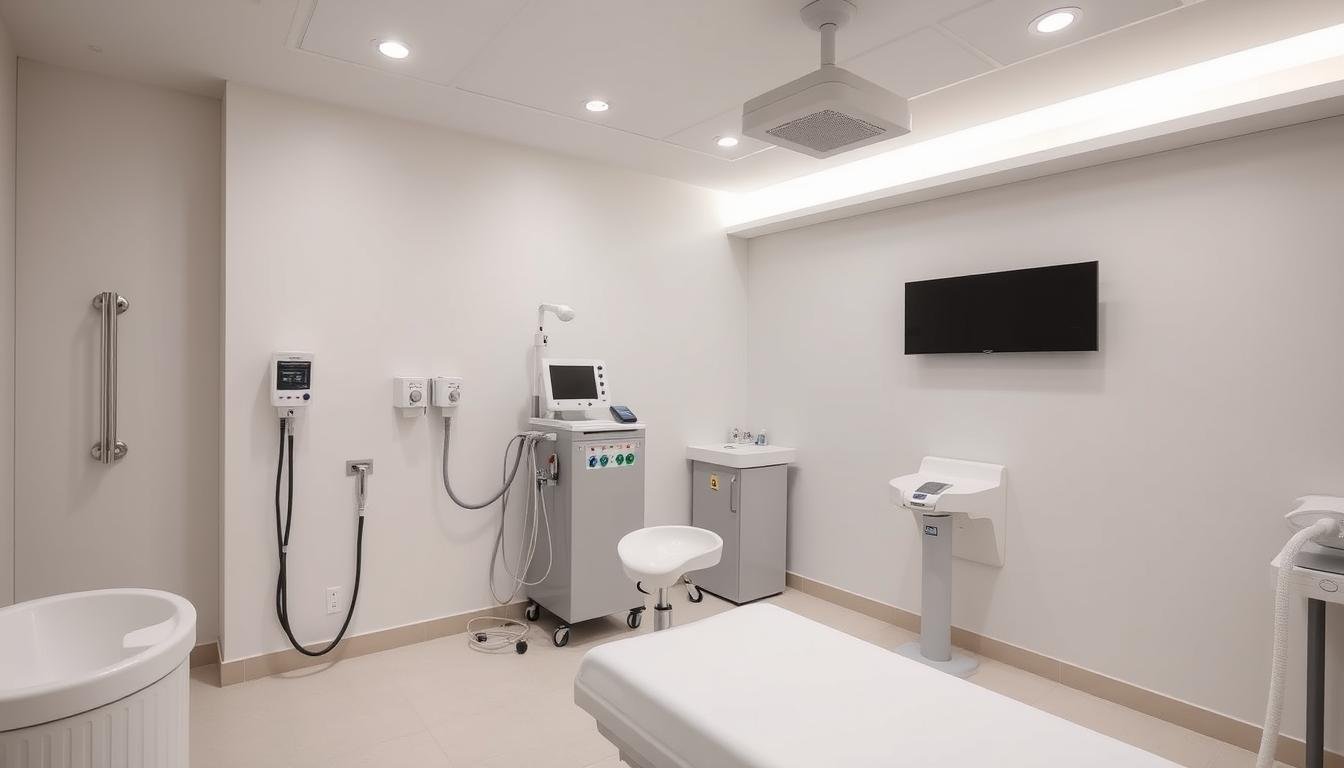The connection between gut health and skin appearance has gained increasing attention in recent years. Many skin conditions like acne, eczema, and psoriasis may be influenced by what’s happening in your digestive system. วารีบำบัดลำไส้ใหญ่, also known as colonic irrigation, is one approach some people consider for improving both gut function and skin appearance. This article explores the potential relationship between colon hydrotherapy and skin health, examining both claims and medical perspectives.Concerned About Your Skin Health?
Learn if gut health might be affecting your skin. Consult with a certified practitioner to discuss your options.
Find a Certified Practitioner
How Colon Hydrotherapy Works
Diagram of a typical colon hydrotherapy procedure setup
Colon hydrotherapy is a procedure that involves flushing the colon with water to remove waste material. During a session, a trained practitioner inserts a disposable tube into the rectum. Filtered, temperature-controlled water is then gently introduced into the colon. The water and released waste material exit through another tube. The procedure typically lasts 45-60 minutes.
Proponents believe this process helps remove toxins, waste, and harmful bacteria that may be affecting overall health, including skin appearance. The theory suggests that when the colon is cleansed, the body can better absorb nutrients and eliminate waste more efficiently, potentially leading to improvements in skin conditions.
The Science Behind Gut-Skin Axis
The gut-skin axis refers to the bidirectional relationship between gut health and skin condition. Research has established several connections:
- The gut microbiome influences systemic inflammation, which can manifest in skin conditions
- Digestive issues may affect nutrient absorption, potentially impacting skin health
- Gut dysbiosis (imbalance of gut bacteria) has been linked to certain skin disorders
- The gut and skin both serve as important immune organs with shared inflammatory pathways
While the gut-skin connection is supported by scientific research, it’s important to note that the specific effects of colon hydrotherapy on this relationship have limited scientific evidence. Most support comes from anecdotal reports rather than controlled clinical studies.
Benefits of Colon Hydrotherapy for Skin Health

Example of potential skin improvements (individual results may vary)
Advocates of colon hydrotherapy suggest several potential benefits for skin health, though it’s important to approach these claims with a critical perspective:
Claimed Benefits
- Removal of toxins that may contribute to skin inflammation
- Improved nutrient absorption for better skin nourishment
- Reduction in systemic inflammation that may manifest as skin issues
- Rebalancing of gut bacteria that influence skin health
- Hydration support that may improve skin appearance
Medical Perspective
- Limited scientific evidence supporting these specific claims
- The body naturally eliminates toxins through the liver and kidneys
- Potential risks may outweigh unproven benefits
- Other approaches to gut health may be safer and more effective
- Individual results vary significantly
Case Studies and Testimonials
“After struggling with persistent acne for years despite trying numerous topical treatments, I explored the gut-skin connection and tried colon hydrotherapy. Within a month, I noticed significant improvements in my skin clarity. While I can’t say it was solely due to the colonics, it seemed to be part of what helped my overall skin health.”
– Sarah, 34
Important Note: Testimonials reflect individual experiences and are not scientific evidence. Results vary significantly between individuals, and improvements may be due to multiple factors beyond the procedure itself.
| Skin Condition | Potential Gut Connection | How Colon Hydrotherapy Might Help | Scientific Evidence |
| Acne | Gut dysbiosis, inflammation | May reduce inflammatory triggers | Limited studies, mostly anecdotal |
| Eczema | Intestinal permeability issues | Potential reduction in gut inflammation | Minimal direct evidence |
| Psoriasis | Systemic inflammation | Possible decrease in inflammatory load | Insufficient research |
| Rosacea | Microbiome imbalance | May influence gut bacteria composition | Theoretical only |
Experiencing Persistent Skin Issues?
Consider exploring the gut-skin connection with professional guidance. Schedule a consultation to discuss if colon hydrotherapy might be appropriate for your situation.
Book a Consultation
What to Expect During Colon Hydrotherapy

A typical colon hydrotherapy treatment room
If you’re considering colon hydrotherapy, it’s important to understand what the procedure involves:
Before the Procedure
- Consultation with practitioner about medical history
- Discussion of any contraindications
- Explanation of the procedure and equipment
- Recommendations on diet before treatment
- Addressing any questions or concerns
During the Procedure
- Changing into a gown in a private space
- Lying on a treatment table with dignity preserved
- Gentle insertion of disposable speculum
- Controlled water flow into and out of the colon
- Session typically lasts 45-60 minutes
After the Procedure
- Possible feelings of lightness or relief
- Potential temporary bloating or gas
- Recommended to stay hydrated
- May be advised to eat light, easily digestible foods
- Follow-up recommendations from practitioner
Safety Considerations
Potential Benefits
- May help some individuals with specific digestive issues
- Performed by trained practitioners in a controlled environment
- Uses sterile, disposable equipment to minimize infection risk
- Some report feeling relief from bloating and discomfort
Important Risks
- Potential for electrolyte imbalance
- Risk of bowel perforation (though rare)
- Possible disruption of beneficial gut bacteria
- Not recommended for people with certain medical conditions
- Limited scientific evidence supporting efficacy
Who Should Avoid Colon Hydrotherapy: People with inflammatory bowel diseases (Crohn’s, ulcerative colitis), diverticulitis, hemorrhoids, heart or kidney disease, recent colon surgery, pregnancy, or those taking certain medications should avoid this procedure. Always consult with your healthcare provider before pursuing colon hydrotherapy.
Expert Opinions on Colon Hydrotherapy

Medical perspectives on colon hydrotherapy vary significantly
Medical opinions on colon hydrotherapy vary widely, with conventional medicine generally taking a cautious or skeptical approach while some complementary and alternative practitioners may be more supportive:
“While the gut-skin connection is a legitimate area of research, there’s insufficient evidence that colon hydrotherapy specifically improves skin conditions. The colon is designed to eliminate waste naturally, and there are safer, evidence-based approaches to improving both gut and skin health.”
– Gastroenterology perspective
“Some patients report skin improvements after addressing gut health, including with procedures like colon hydrotherapy. However, we need more research to understand these connections better. I recommend patients work with both conventional and complementary practitioners to find safe, effective approaches.”
– Integrative medicine perspective
Alternative Approaches to Gut and Skin Health

Evidence-based approaches to supporting gut and skin health
If you’re interested in the gut-skin connection, consider these evidence-based approaches:
- Balanced diet: Rich in fiber, fruits, vegetables, and omega-3 fatty acids
- Probiotics and prebiotics: From food sources or supplements to support gut microbiome
- Hydration: Adequate water intake supports both digestive and skin health
- Stress management: Chronic stress affects both gut function and skin appearance
- Regular exercise: Promotes healthy digestion and circulation to the skin
- Sleep quality: Essential for cellular repair in both digestive and skin tissues
- Targeted skincare: Address specific skin concerns with evidence-based products
Frequently Asked Questions About Colon Hydrotherapy and Skin
How quickly might I see skin improvements after colon hydrotherapy?
Individual responses vary significantly. Some people report noticing changes within days, while others may take weeks or see no change at all. It’s important to have realistic expectations and understand that any improvements may be due to multiple factors, not just the procedure itself.
How many colon hydrotherapy sessions might be needed for skin benefits?
There’s no standardized recommendation, as this varies based on individual factors and there’s limited scientific evidence. Some practitioners suggest an initial series of 3-6 sessions, followed by maintenance sessions. Always consult with healthcare providers about appropriate treatment plans for your specific situation.
Is colon hydrotherapy better than other approaches for improving skin?
There’s insufficient evidence to suggest colon hydrotherapy is superior to other approaches for skin health. Many dermatologists and gastroenterologists recommend starting with less invasive approaches like dietary changes, proper hydration, stress management, and evidence-based skincare before considering procedures like colon hydrotherapy.
What’s the difference between colon hydrotherapy and an enema?
While both involve introducing water into the colon, they differ significantly. Enemas typically affect only the lower portion of the colon, use smaller amounts of water, and can often be self-administered. Colon hydrotherapy reaches further into the colon, uses more water with controlled temperature and pressure, and should only be performed by trained practitioners with specialized equipment.
Are there any scientific studies specifically on colon hydrotherapy and skin health?
There are very few peer-reviewed scientific studies specifically examining the effects of colon hydrotherapy on skin conditions. Most evidence is anecdotal or based on theoretical connections between gut and skin health. More research is needed to establish any direct benefits.
Making an Informed Decision About Colon Hydrotherapy

Consulting with healthcare providers is essential before pursuing colon hydrotherapy
The relationship between gut health and skin appearance is a fascinating area of ongoing research. While colon hydrotherapy is one approach some people consider for addressing both digestive and skin concerns, the scientific evidence supporting its specific benefits for skin health remains limited.
If you’re interested in exploring the potential benefits of colon hydrotherapy for your skin health, it’s essential to approach this option with a balanced perspective. Consider consulting with both conventional medical providers (like dermatologists and gastroenterologists) and certified colon hydrotherapy practitioners to get comprehensive guidance.
Remember that individual responses vary significantly, and what works for one person may not work for another. The safest approach is to start with well-established, evidence-based methods for improving both gut and skin health, such as dietary modifications, proper hydration, stress management, and appropriate skincare.
Ready to Explore Your Options?
Consult with a certified colon hydrotherapy specialist to discuss personalized skin-gut health plans. Always speak with your healthcare provider before beginning any new health treatment.
Find a Certified Practitioner Near You









